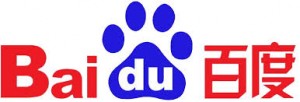INTERNET: Baidu Knocked Again Over iQiyi Valuation
Bottom line: Baidu will raise the valuation of iQiyi as it sells the unit to outside investors, in a bid to avoid insider dealing accusations, while it will also suffer a revenue hit as it evicts advertisers who operate illegal gambling sites.

Internet search giant Baidu (Nasdaq: BIDU) can’t seem to catch a break over the past week. First the company was hit by reports of a major rejection in Hollywood, and then an investigative report revealed it was hosting links to illegal gambling sites. Now the company is being rejected again by US investors, who are complaining that Baidu is grossly undervaluing its iQiyi online video service as it prepares to sell the unit to a group led by company chief Robin Li. At the same time, the earlier gambling site scandal is taking a new twist, with the Internet regulator reportedly opening an investigation into the matter.
This kind of bad news tends to come in cycles, and we’ve seen similar spates of negative developments come in China for even bigger names like Alibaba (NYSE: BABA) and Apple (Nasdaq: AAPL). But in Baidu’s case, the company is being plagued by several very China specific problems, including lax screening of its advertisers and also a corporate culture that encourages inside dealing benefiting company owners at the expense of minority shareholders.
Baidu and many other Chinese companies have engaged in many of these practices for years, mostly the result of an undeveloped local corporate culture that has only formed over the last 2 decades. That culture, famous for insider dealing and lack of transparency, got Baidu into big trouble earlier this year when it was punished for its longtime practice of posting paid advertisements in search results without disclosing that fact to Internet users.
All that said, let’s look at the spin-off deal for iQiyi, Baidu’s sector-leading but money-losing video service. Baidu first announced plans to sell the service in April to a group of investors including Baidu founder Robin Li, in a deal that reportedly valued the company at a relatively modest 2.5 billion yuan ($373 million). (previous post)
Now one of Baidu’s major institutional stakeholders, a hedge fund called Acacia, is criticizing the deal as vastly undervaluing iQiyi. (English article; Chinese article) It appears some of the earlier valuation figures may have been inaccurate, and now Acacia is saying in a new open letter that the buyout deal actually values iQiyi at $2.8 billion. But Acacia argues that figure is far too low, and that iQiyi should be worth closer to $5.8 billion.
Revised Offer Coming?
The buyout price does indeed seem a bit low, since iQiyi’s closest rival, Youku Tudou, was valued at about $4.5 billion when it was taken private by e-commerce giant Alibaba last year. It’s a bit unclear what leverage, if any, Acacia will have in the iQiyi deal, since Li probably controls a majority of Baidu shares.
But Li can hardly afford another scandal right now, and Acacia may be using that fact to pressure him into raise the sale price for iQiyi. Baidu has already responded that it will form an independent committee to evaluate the original bid (Chinese article), and I do expect that we could see the buyer group revise its proposal to value iQiyi at a higher amount of around $3.5-$4 billion.
Next there’s the relatively incremental development that has China’s main Internet regulator opening a formal probe into the gambling scandal that was broken in a media report over the weekend. (Chinese article) I previously wrote about this scandal, which centers on online gambling sites that opened advertising accounts to promote legitimate products during the day, only to link to illegal sites during the nighttime hours. (previous post)
The latest reports simply say the Internet regulator has instructed its Beijing branch to probe Baidu on the matter. In the past such probes would have been relatively inconsequential, but that may no longer be the case as China makes more serious efforts to clean up its Internet. Accordingly, we could see Baidu suffer a new wave of lost business as it purges these advertisers that probably account for a small but still significant volume of its advertising revenue, perhaps up to 3-4 percent.
Related posts:
- INTERNET: Baidu in Gambling Scandal, Eyes Credit Scoring
- INTERNET: Baidu Welcomed in Milan, Rebuffed in Hollywood
- INTERNET: Baidu Break-Up Continues with Video Spin-Off
- Today’s top stories
